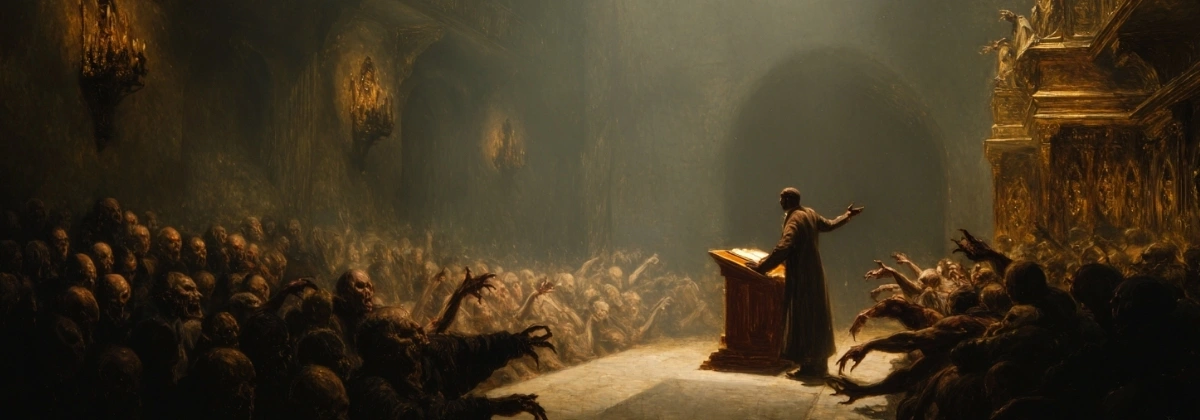Psalm 12 | Hebrew insights from verse 8
Psalm 12:8 closes David’s brief but blazing lament with a stark picture: wickedness isn’t merely present—it’s applauded. Across the psalm, David grieves a culture where truth evaporates, flattery thrives, and the faithful seem to vanish (vv. 1–2). The climax: when disgrace is lifted up, the wicked roam freely. It’s a sobering diagnosis of any age—ours included.
In Psalm 12:8, three Hebrew threads sharpen the picture: “wicked” — רְשָׁעִים (reshaʿim), from רשע (rasha), denotes active evil, injustice, and lawlessness—not moral ambiguity but deliberate defiance; “prowl/strut” — הִתְהַלֵּכוּ (hithalleku), the hitpael of הלך (halakh), portrays the wicked walking about freely and arrogantly—unrestrained boldness on public display; and “vileness is exalted” — רוּם זֻלּוּת (rum zullut), where רוּם (rum) means “to lift up” and זֻלּוּת (zullut) means “worthlessness, contempt, moral disgrace,” conveys this sense: when what is contemptible is celebrated and elevated, evil gains runway and freedom to roam.
Before we rush to application, notice how the language itself guides us: if the reshaʿim openly hithalleku, it’s because zullut has been rum—worthlessness has been lifted to a place of honor. That progression moves from vocabulary to visibility to values: what a society celebrates, it soon normalizes; what it normalizes, it empowers. With that lens, David’s world and ours come into focus—setting up what he saw then, and what we must discern now.

When vileness is trending and the wicked seem to strut unchecked, the answer isn’t cynicism—it’s consecration. Psalm 12 doesn’t just diagnose decay; it disciples a remnant. Before the noise reshapes our norms, we reanchor in what is pure, pray like it matters, refuse to amplify what God calls worthless, and speak truth with courage. These practices aren’t grand gestures; they’re steady, holy habits that keep us aligned with the God who preserves His own.
When vileness is trending and the wicked seem to strut unchecked, the answer isn’t cynicism—it’s consecration. Psalm 12 doesn’t just diagnose decay; it disciples a remnant. Before the noise reshapes our norms, we reanchor in what is pure, pray like it matters, and order our lives around holiness—guarding what we consume, refusing to platform what God calls worthless, and choosing blessing over bitterness. We practice truthful speech when flattery pays, mercy when mockery is fashionable, and courage when silence feels safer. We fast to sharpen discernment, Sabbath to resist frantic culture, and gather with the faithful so hope out-sings headlines. None of this is flashy; these are steady, holy habits—Scripture, prayer, integrity, community—that keep us aligned with the God who arises for the needy, preserves His people, and proves His words pure when every other word is cheap.